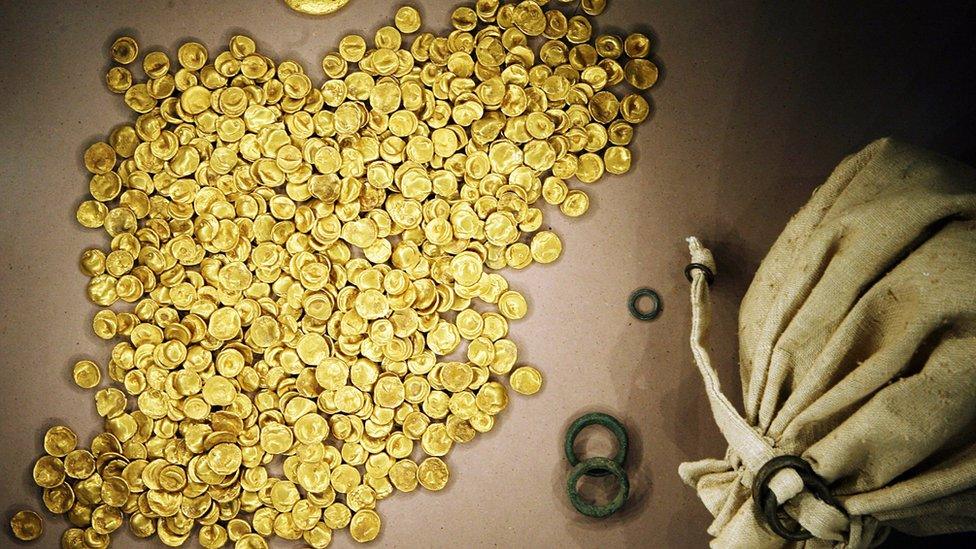Four arrested over €1.6m Celtic coin theft
- Published

The stolen gold coins were discovered near Manching in 1999, and are thought to date back to the first century BC
Four people have been arrested in Germany over the theft of a hoard of Celtic gold coins worth about €1.6m (£1.4m).
Hundreds of coins were taken from a museum in Manching, Bavaria, during a night raid in November.
Many of them dated from around the 1st Century BC.
The authorities say there is "overwhelming evidence" in the case and that investigations are continuing. More details are expected on Thursday.
That includes whether part of the horde of coins has been recovered.
The arrests were made on Tuesday during a search operation in the northern state of Mecklenburg-Western Pomerania.
Bavaria's interior minister, Joachim Herrmann, said the suspects were "professional burglars".
"The mission continues," Ch Insp Ludwig Waldinger from the Bavarian police told the Bild newspaper.
"We are searching properties in several federal states."
The coins were unearthed during a 1999 archaeological dig near Manching - considered to be the biggest discovery of Celtic gold in the 20th Century. They had been on display since 2006.
Police at the time of their theft suspected that those involved sabotaged the museum's alarm system. Just before the break-in, nearby internet cables were cut, causing widespread outages.
This meant the alarm system was not triggered when a door was pried open, although it was able to record when the robbery, which lasted less than 10 minutes, took place.
The authorities had been exploring whether the theft involved organised crime and was linked to previous raids.
In 2017, a hefty gold coin weighing 100kg was snatched from a Berlin museum. Two years later, thieves took 21 pieces of jewellery and other valuables in a dramatic diamond heist at Dresden's Green Vault museum that was caught on CCTV.
The loss of the coins devastated the museum and the wider community.
Rupert Gebhard, head of collections at the State Archaeological Collection in Munich, said it felt "like losing an old friend".
Related topics
- Published19 July 2023
- Published23 November 2022
- Published1 July 2022